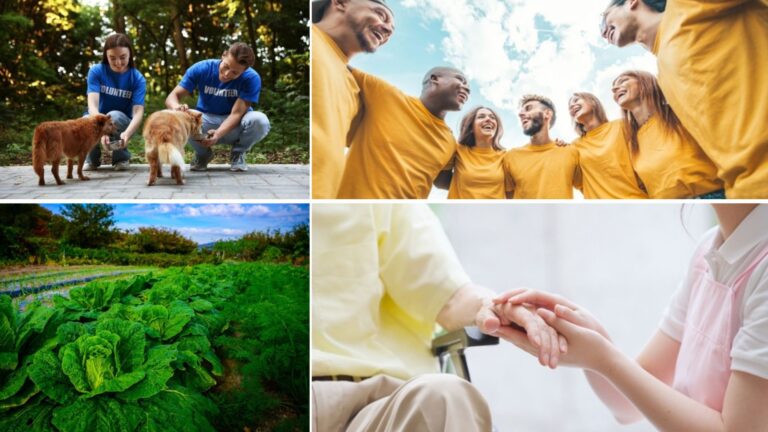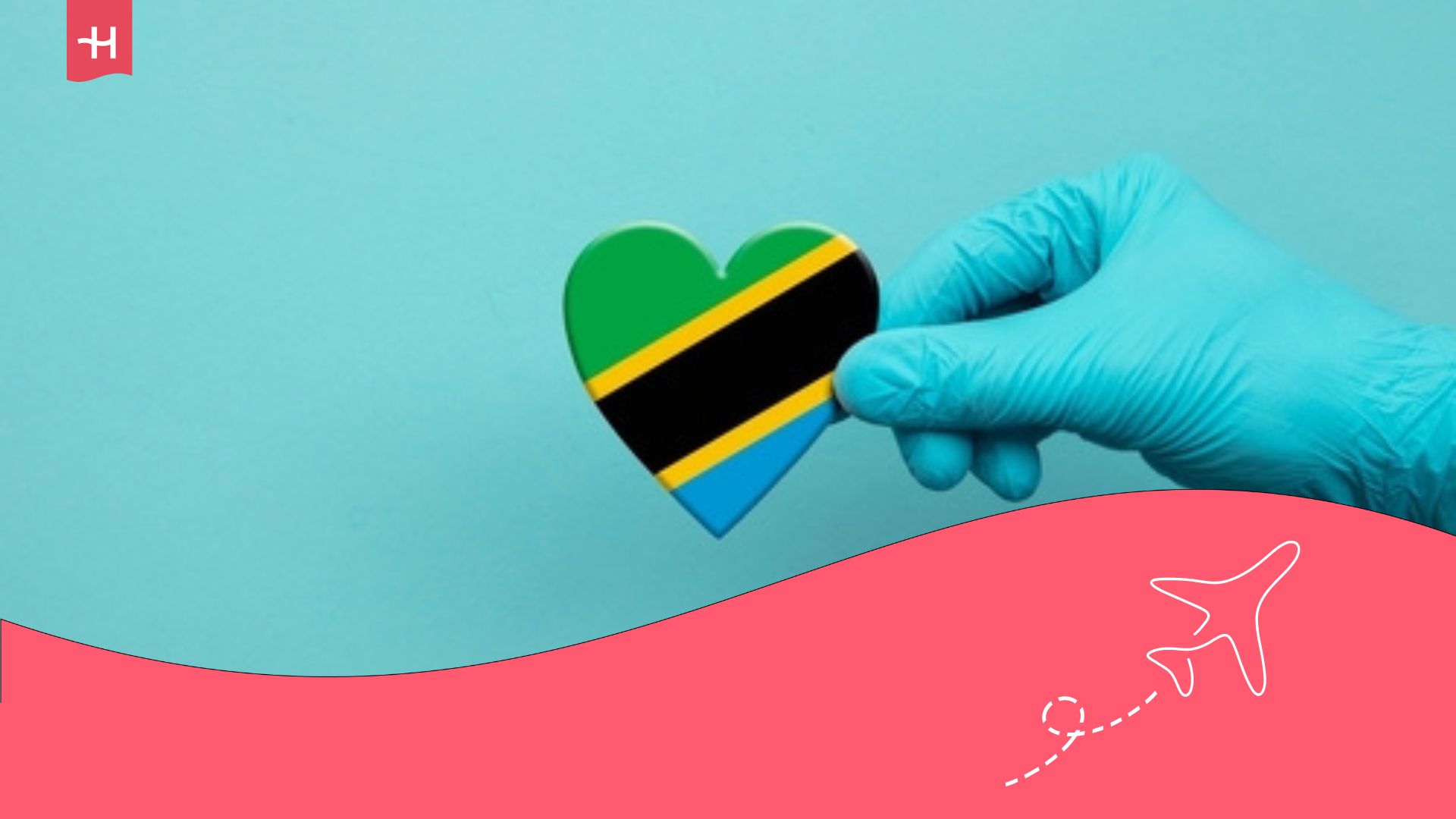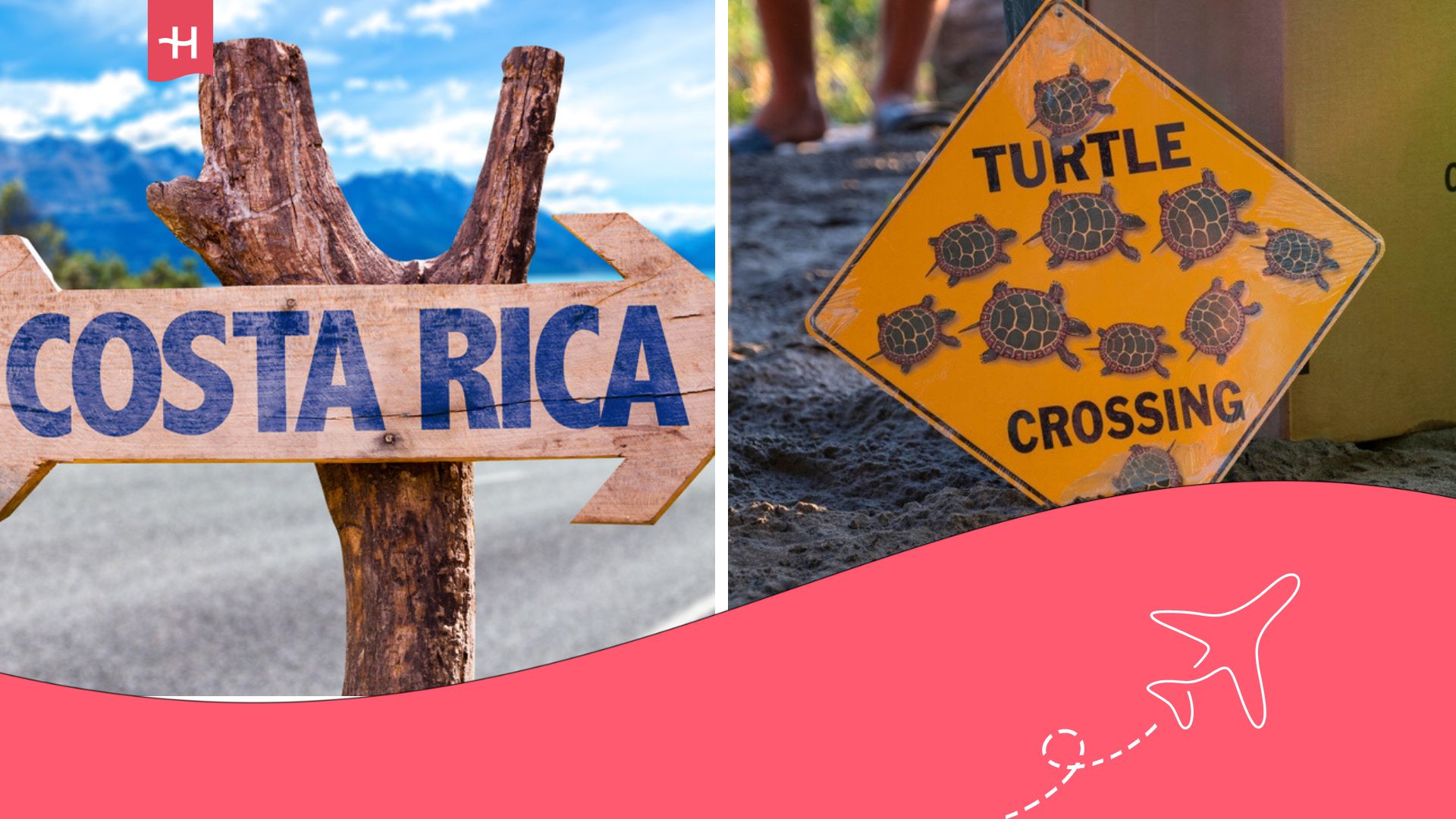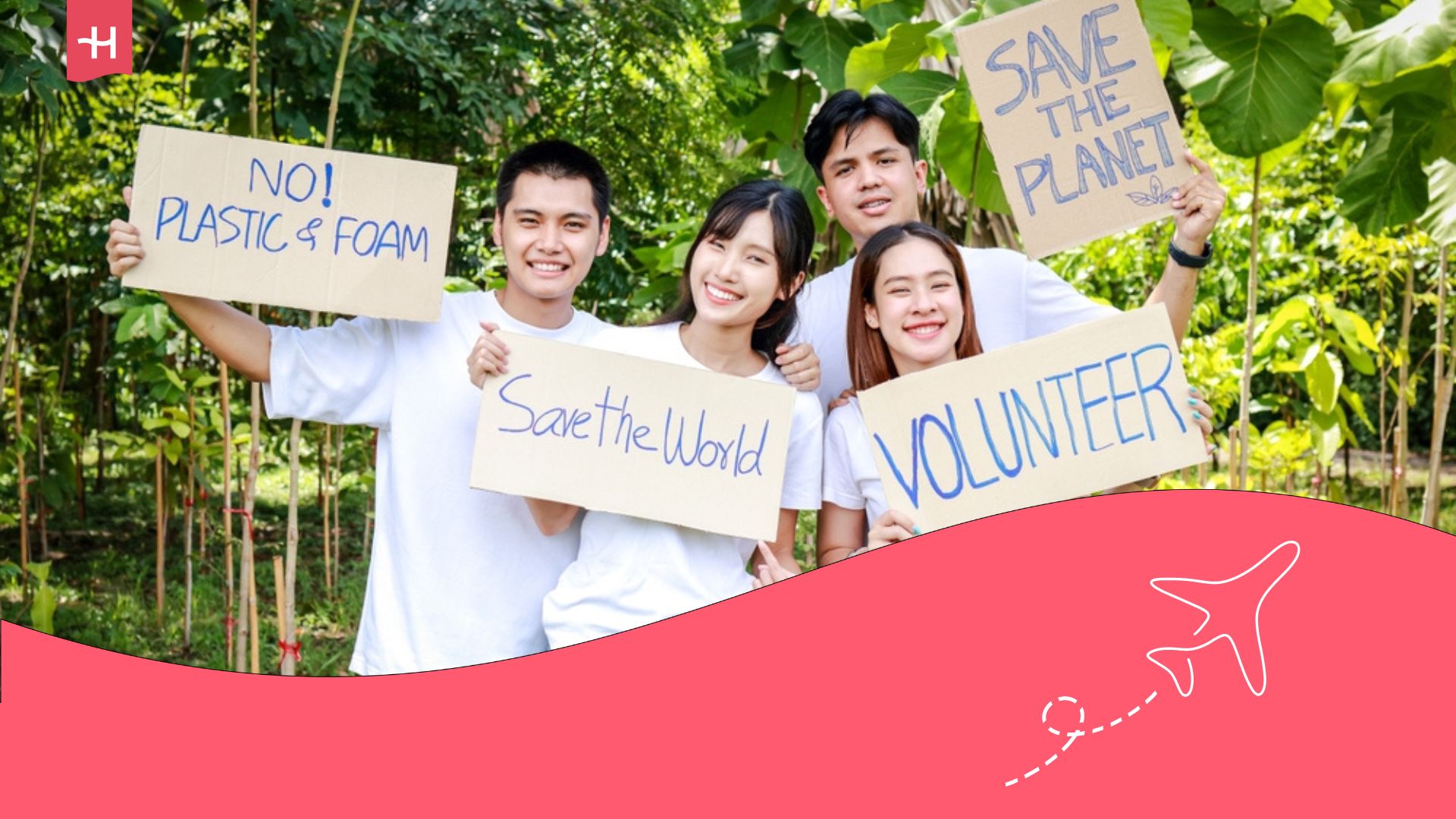Volunteering in South Korea: Get ready to go
Volunteering in South Korea can be an unbeatable opportunity to get to know the country while getting involved in a good cause.
South Korea often ranks among the world’s most innovative and developed countries. Seoul is a major center of technology, culture, and education. Yet behind this modern image, the country faces serious social challenges that open the door to meaningful opportunities for volunteering in South Korea.
This country has one of the fastest-aging populations in the world, and the arrival of foreign workers and refugees from places like Yemen and Vietnam has brought new social dynamics that many organizations are trying to address through inclusion, education, and cultural integration. At the same time, it struggles with high levels of youth stress, school dropout rates, and unequal access to education.
For international volunteers, this experience goes far beyond lending a hand. It’s a chance to dive into a rich and captivating culture, gain insights into Confucian and Buddhist traditions, enjoy some of the world’s most renowned cuisine, and experience a country where history and modern life exist side by side.
This article covers everything about volunteering in South Korea, from inspiration and practical tips to real opportunities that give your trip a true purpose.
What are the benefits of volunteering in South Korea?
Volunteering in South Korea isn’t just about giving back. It’s also a chance to grow personally, immerse yourself in a culture very different from your own, and gain a fresh perspective on the world. As you contribute to social, educational, or community projects, you’ll discover how a society shaped by respect, discipline, technology, and tradition truly works.
One of the greatest rewards is living alongside locals, experiencing their everyday life, and gaining insight into how they relate to each other, work, and value community. While cultural differences and language challenges may feel daunting at first, adapting to them becomes a central part of the experience and the most meaningful source of personal growth.
It is also a unique opportunity to learn Korean in a truly immersive way. Being in daily contact with native speakers in real-life situations gives you practical skills that no classroom can offer. For those interested in education, social work, or international development, volunteering in South Korea can be a major boost to both your personal and professional growth.
Many volunteers also highlight the emotional growth that comes from living in a country with a fast-paced lifestyle where daily life is guided by respect. You learn to be more patient, more empathetic, and to see the world from a different perspective.
And if you add the chance to explore stunning places like the temples of Gyeongju, Jeju Island, or the vibrant city life of Busan, it’s easy to see why so many young people choose South Korea as a destination for volunteering trips.

What are the requirements for volunteering in South Korea?
Unlike other countries, South Korea has quite specific requirements for those looking to volunteer. That’s why it’s essential to plan ahead and confirm all details with the host organization. Here are the key points you need to keep in mind:
Appropriate visa
If you want to volunteer in South Korea, entering on a tourist visa (C-3) is not enough. Most volunteer programs, especially those run by registered NGOs or offering perks like accommodation and meals, require a specific visa to participate.
In these situations, most volunteers apply for a short-term C-4 visa, which the hosting organization arranges through an invitation. For longer-term community or humanitarian programs, you might need a D-6 visa for social or religious activities. Each visa has specific requirements, so it’s important that the program you choose offers clear support to guide you through the process.
The visa must be obtained before traveling, as immigration status cannot be changed once in South Korea.
Invitation letter from the organization
A key requirement for obtaining the right visa is having an official invitation letter from the Korean NGO, foundation, or social organization hosting you as a volunteer. The letter should include your full name, passport details, length of stay, type of project, your role, and the exact address of the placement.
International health insurance
South Korea has a high-quality healthcare system, but it can be expensive for foreigners without insurance. For this reason, having international travel health insurance is mandatory, covering accidents, hospitalization, COVID-19, and repatriation.
Some programs already include this in their fees. If this is not the case, you will need to take out your own insurance and send a copy of the policy before your arrival.
Additional documentation
In addition to a valid passport (with at least six months’ validity), you may be asked to provide:
- Apostilled criminal record certificate
- Certificate of studies or related qualifications (for educational volunteering)
- Completed and signed registration form
- Motivation letter or personal essay
- Recent passport-type photo
Required documents can differ depending on the organization and the type of visa, so staying in direct contact with the program team is essential.
Language
While knowing Korean is not strictly required, many organizations appreciate volunteers who have a basic understanding of the language or a willingness to learn. In programs involving English teaching or working with children, you can usually get by with just English, but having some knowledge of local customs and basic phrases is always a plus.
Some NGOs even offer Korean language classes as part of the program.
Participation costs
Most volunteer programs in South Korea come with a fee, as they are not government-funded. This usually covers accommodation, some meals, orientation, and materials. You must pay the fees before arrival, and they typically range from $400 to $900 per month, depending on the program and its location.
Connectivity in South Korea
While it’s not required, using a Holafly eSIM in South Korea can make your volunteer experience much easier. Being far from home, you’ll want to stay connected with family and friends, navigate the city with maps and local apps, use translation tools, and keep in touch with your program coordinator. Reliable internet is key for all of this, and Holafly makes it simple.
The eSIM gives you unlimited data throughout South Korea so you will not have to rely on WiFi. If you plan to continue your travels in Asia Holafly Plans offer a convenient option. A single subscription provides data, limited or unlimited, in over 170 countries making it perfect for volunteering in Japan or exploring nearby nations.
Important: If you are a frequent traveler and want to stay connected without worrying about expensive roaming or looking for a new SIM at every destination, Holafly’s subscription plans are for you. With a single eSIM, enjoy internet in more than 170 countries for a fixed price and no surprises on your bill. Travel without limits and connect easily and securely! 🚀🌍

What are the best volunteer programs in South Korea?
If you are considering volunteering in South Korea you should know from the beginning that it is not a usual destination for volunteer experiences. That is exactly what can make it such a life-changing experience.
Instead of working in rural or impoverished areas like in other countries, volunteer programs here usually focus on more contemporary challenges, such as the educational pressure on young people, the integration of migrant communities, the isolation of older adults, or the protection of animals in urban environments.
The programs are not only well-structured but also provide everything you need to settle in from day one. In addition, because South Korea has a society with very clear rules, organizations are usually very attentive in supporting your adjustment, ensuring the experience is positive both for you and the community.
Here are some of the most interesting and accessible programs to consider for volunteering in South Korea. Each offers a unique chance to experience the country from the inside, not as a tourist, but as an active member of a community working to grow, heal, and connect with others.
1- Teaching and After-School Support Program – International Volunteer HQ (Seoul)
The IVHQ Teaching and After School Support program in Seoul is designed for volunteers who want to help at after-school centers, supporting children who lack access to English lessons or extracurricular activities beyond regular classes.
It is an urban experience with cultural immersion in a top-tier city where you can explore a rich culture, advanced technology, and centuries-old traditions.
| Feature | Detail |
| Where | Seoul, South Korea |
| What it is | After-school educational support in community centers: teaching basic English, tutoring, recreational activities, accompanying children after school hours. |
| Specific requirements | Be at least 18 years old, show proof of good health, speak English (and it’s an advantage to know some Korean), volunteer insurance, clean criminal record. |
| Duration | From 1 to 12 weeks (or even longer in some cases). |
| What’s included | Airport pickup, orientation, accommodation (usually shared), breakfast and lunch included, 24/7 support from the local team. |
| Price | From approximately $667 for one week of urban volunteering in Seoul. |
| Tasks to be performed by the volunteer | Plan basic English lessons; teach or assist in small groups; coordinate extracurricular activities (songs, games, dance); interact with children from vulnerable backgrounds and participate in cultural exchanges. |
2- Animal Care and Rescue Program – International Volunteer HQ (Seoul)
The Animal Care and Rescue program in Seoul welcomes volunteers who want to work hands-on in shelters and rehabilitation centers that rescue animals from abuse or neglect, including dogs from illegal farms. Located in the outskirts of Seoul, it combines volunteer work with the opportunity to experience one of Asia’s most vibrant cities.
| Feature | Detail |
| Where | Seoul and surrounding areas, South Korea |
| What it is | Support at a rescue center for animals that have been exploited or abandoned. Tasks include: cleaning enclosures, organizing food, walking dogs, helping to socialize traumatized animals. |
| Specific requirements | Over 16 years old (in some cases 18), basic level of English, good physical condition, willingness to work outdoors and with animals that may have special needs. |
| Duration | From 1 to 12 weeks (or even longer in some cases). |
| What’s included | Shared accommodation (usually in Seoul or nearby), airport pickup, initial orientation, breakfast and lunch included (in some packages), 24/7 support. |
| Price | From approximately $667 per week for urban programs in Seoul. |
| Tasks to be performed by the volunteer | Cleaning enclosures, feeding rescued animals, walking and socializing them, collaborating in international adoption campaigns, helping animals improve their living conditions. |
3- Eco-Volunteering in South Korea Program – Adventure Volunteers (Seoul)
This Adventure Volunteers project takes place at Yeouido Saetgang Ecological Park in Seoul, where volunteers help restore a natural area that urbanization and industrial development have heavily affected.
This volunteering opportunity in South Korea lets you take part in urban environmental work, with a strong hands-on component, all within the modern city of Seoul.
| Feature | Detail |
| Where | Seoul, South Korea — specifically in Yeouido Saetgang Ecological Park. |
| What it is | Ecological restoration: tree planting, removal of invasive species, wetland cleanup, community environmental education. |
| Specific requirements | Must be over 18 years old, have a basic level of English, and be physically fit for outdoor work. Criminal background check required. |
| Duration | From 1 to 12 weeks |
| What’s included | Accommodation, two meals a day (breakfast and lunch), airport pickup (subject to conditions), 24/7 local support. |
| Price | For two weeks: approximately $1,600. |
| Tasks to be performed by the volunteer | Planting trees and shrubs; removing invasive plants; working in an ecological nursery; monitoring wetlands; collaborating in environmental education workshops for the community. |
4- Organic Farming at Countryside Farm Program – Workaway Listing (Gyeongju, South Korea)
This rural project gives you the chance to experience life in the South Korean countryside, working with organic farming and enjoying an authentic cultural immersion away from the fast pace of Seoul.
| Feature | Detail |
| Where | Organic farm in the countryside, near Gyeongju (southern South Korea). |
| What it is | Organic production of vegetables and other crops: planting, harvesting, packaging products, maintaining vegetable gardens, physical agricultural tasks. |
| Specific requirements | According to the host: minimum one-month stay, preferably 22 years or older, good physical condition (intensive tasks), availability for outdoor work. |
| Duration | Minimum stay of one month (approximately) |
| What’s included | Accommodation at the project site, inclusion in daily farm life (except for specific services detailed). |
| Price | No fixed price is specified. It is a form of exchange (“volunteer for stay”) rather than a program with a standard fee. |
| Tasks to be performed by the volunteer | Planting, harvesting, garden maintenance, product packaging, physical work in the fields, living with the host. |
What types of volunteer projects are available in South Korea?
South Korea may not be the first place that comes to mind for volunteering but once you dive into its culture you see why so many people from abroad choose to give their time and energy here. These programs offer more than just the chance to help and open the door to experiences and perspectives that typical tourism rarely shows.
Here are some of the most common projects you can find if you decide to volunteer in Korea.

Volunteering with rescued animals
Despite being one of Asia’s most advanced economies, South Korea struggles with animal welfare, particularly in urban and suburban areas where overcrowded shelters care for abandoned dogs and cats.
Some programs give you the chance to work hands-on in rescue centers, taking care of animals by feeding and bathing them, cleaning their living areas, going with them to the vet, or just offering attention and affection. It can be an intense and moving experience, especially for those who love animals and feel strongly about abandonment.
Education and cultural exchange with children and adolescents
In a country where academic pressure is intense, volunteer programs with Korean students aim to balance school demands with fun, social, and emotional support activities.
As a volunteer, you might assist in summer programs, cultural camps, or casual English conversation classes. Some projects center on sharing your culture through games, songs, recipes, or simply chatting with the children to help them become more comfortable speaking another language.
Agricultural work in rural areas
Far from the hustle of Seoul, South Korea’s countryside keeps centuries-old traditions alive. Volunteering on farms gives you the chance to live close to nature, helping with planting and harvesting, tending to animals, assisting with daily chores, and sharing meals with your host family.
This volunteer work combines ecology, physical effort, and a sense of community that you rarely find in urban settings.
Community projects with older people
Loneliness is a quiet but serious issue in South Korea, particularly among older generations. Some volunteer programs, usually run by local NGOs, aim to connect young volunteers with seniors through workshops, home visits, neighborhood walks, or even basic technology lessons.
This allows you to give back companionship, support, and humanity to those whom the fast pace of modern life has left somewhat marginalized.
Sustainability and the environment
Although less common, some organizations run projects focused on environmental care, such as cleaning beaches or trails, running recycling awareness campaigns, or maintaining small urban gardens. Most of these programs take place during certain times of the year, like spring and summer, and typically last from one week to a month.
How much does it cost to volunteer in South Korea?
Although volunteering might seem like something you do for free, the reality is a bit more complex. Doing a volunteer program in South Korea requires investing time, effort, and some money. However, you do not waste money; this is a different way to travel where you can minimize or even eliminate many usual expenses.
Fixed program costs
Most intermediary organizations, such as Volunteer World, Workaway, GoAbroad, or local programs, run most volunteer programs in South Korea and charge a participation fee. This fee typically covers accommodation, administration, orientation, support, and in some cases, meals.
Depending on the type of volunteer work, its duration, and the services included, costs can range from $250 to $450 per week. Some specific programs, particularly rural or cultural exchange projects, may be cheaper or operate on a work exchange basis, providing room and board in return for your help.
Variable expenses
Beyond the program itself, there are other factors to consider when budgeting for your experience. The first is the plane ticket, which can cost around $1,000 to $1,400 round-trip if you are traveling from Europe or Latin America.
You should also factor in mandatory international health insurance, which costs around $45 to $90 per month, as well as some extra money for local transportation, leisure activities, or additional meals if your program does not cover them all.
You may also encounter administrative fees depending on the visa you use, even though many short-term volunteers enter on a tourist visa. Some programs might also require medical certificates or tests, which could add to the costs.
What you avoid paying when volunteering
This is often the game changer, volunteering lets you cut down on many of the costs that an independent traveler in South Korea would usually have.
You do not need to pay for hotels since accommodation is usually provided, eat out every day as many programs include two or three meals, or keep moving from city to city because most projects take place in a single location.
You will also experience the local culture firsthand which is priceless, sharing daily life with Korean hosts, eating the food they eat, communicating in their language even with gestures, and seeing the country from the inside.
In other words, volunteering is a way to experience South Korea without a big budget while gaining personal rewards that go far beyond saving money.
Frequently asked questions about volunteering in South Korea
Although it is not mandatory, picking up a few basic Korean phrases can make a big difference. Most programs do not require fluency, especially if the work is practical or takes place in centers with international staff. Still, having some knowledge of the language will make day-to-day life much smoother, especially in rural areas or when working closely with seniors.
It depends on your home country and the length of the program. For short-term volunteering, up to 90 days, many Latin American and European countries do not require a visa and can enter as tourists. However, if the program lasts longer or involves work with official institutions, you should check with the nearest South Korean embassy to see if you need a different visa.
Yes, South Korea is one of the safest countries in Asia. Crime rates are low, public transportation is reliable, and the infrastructure is modern. As anywhere, it is important to stay aware and respect local customs, but overall volunteers tend to feel welcome and comfortable during their stay.
Generally, volunteers must be at least 18 years old. Some programs allow younger participants, starting at 16, if they have parental consent or are accompanied. While there is typically no maximum age, projects that are physically demanding, like farming, may require certain health or fitness levels.
South Korea is not a cheap country, but with some planning it is possible to get by without spending too much. A budget-friendly lunch costs around $5 to $8, a subway ride in Seoul is about $1.16, and hostels range from $15 to $30 per night. If you want to stay longer, it is important to budget carefully and consider work exchange options like Workaway or Worldpackers.





 Language
Language 


















 No results found
No results found








